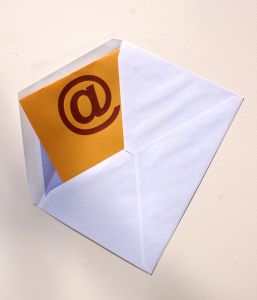 What happens when you submit your resume online? What do you do with your cover letter? It's been standard practice for decades to include this introductory document with every resume you send out, but now that we aren't mailing printed documents to employers, the traditional cover letter is changing.
What happens when you submit your resume online? What do you do with your cover letter? It's been standard practice for decades to include this introductory document with every resume you send out, but now that we aren't mailing printed documents to employers, the traditional cover letter is changing.
Opinions vary on whether or not cover letters continue to be relevant – some experts stress the increased need for this type of targeted introduction, while others see social media profiles taking over the role of traditional cover letters in some industries.
You'll still find many employers asking for or even requiring cover letter submission, as well as providing dedicated space to upload an electronic file or add related information to online application forms. A survey conducted earlier this year by OfficeTeam, an administrative staffing service, found that "91% of executives polled said cover letters are valuable when evaluating job candidates. In addition, 79% of respondents indicated it's common to receive cover letters even when applicants submit resumes electronically."
While the printed letter may be dead, the need to introduce yourself and grab the attention of hiring managers isn't. The goal from your standpoint as the job seeker is to convince the reader to move on to your more detailed resume.
Writing Tips
The general rules of cover letter writing haven't changed much with the move from print to digital, and it's more important than ever to quickly gain the reader's attention no matter your format. Here are a few suggestions for maximizing this opportunity to make a positive first impression:
- Write for a specific audience. It's good to have a a basic letter ready to customize for each job vacancy you respond to. Tailoring the letter makes it more relevant to each company and, when well written, will allow you and your application to stand out from the crowd. When possible, send it to the hiring manager by name. Check out five ways to address your cover letter, other than "to whom it may concern," from CareerBuilder.com.
- Tell a story. Don't just repeat or summarize your resume, but instead use this chance to allow the reader to get to know you a little better. Try a four-paragraph approach like the one described by Susan Adams on Forbes.com.
- Remember it's not about you. It's about them. What do you have to offer the employer? Why should the person screening your letter give your application further consideration? Georgetown University's Career Education Center presents five questions you should answer in your cover letter.
- Keep it brief. One page written with a word processing program is all you need. Be concise and get to the point of why you are writing early in the document.
- Maintain a professional tone. While you may send your resume and cover letter via email, this communication isn't casual correspondence. It may also be an opportunity to do more than just introduce yourself. As Purdue's Online Writing Lab points out, the cover letter also "provide[s] a sample of your written communication skills."
- Review, revise, and repeat. Your cover letter should be flawless in terms of spelling and grammar. And like your resume, this additional document should be kept up-to-date. Ask colleagues and classmates for feedback and request a critique from your school's career center.
Digital Alternatives
Explore these options for submitting your cover letter electronically:
- In the body of an email message: If you are sending everything via email, CareeRealism.com recommends copying and pasting your cover letter into the email message for quick access, which may increase the chances it is actually read. Test the formatting by sending a message to yourself or a friend.
- As an email attachment: Adding a letter as a separate attachment does create an extra step for the employer who then has to download and open the document, but may be preferred by some managers. Pay close attention to any instructions provided. Boston.com's Job Doc blog provides helpful advice for cover letter attachments.
- For use with an automated system: You may be required to upload a cover letter file or the text it contains to an application system. Santa Clara University's Career Center offers quick tips for creating a "computer friendly" cover letter and moving it from MS Word to an electronic form.
In all cases it's critical to research examples of what is expected and heed any instructions for submission provided by the employer. Requirements will differ from job to job and company to company. In the absence of guidelines, "do whatever positions you most effectively with the employer," advises Trudy Steinfeld in her "Cover Letters in the Age of Email" post last week on Forbes.com. Follow the trends in your industry and seek additional advice from those in your professional network already working in your field.
What are your experiences with cover letters and electronic applications? Share your success stories and lessons learned with us here in the comments area.
Image credit: stock.xchng